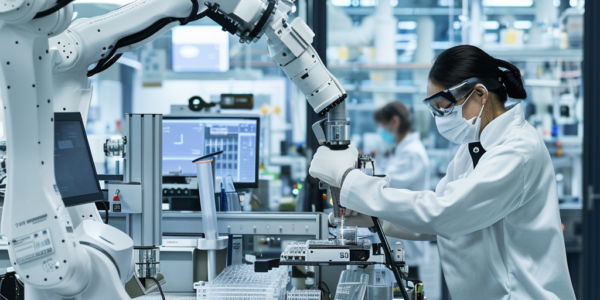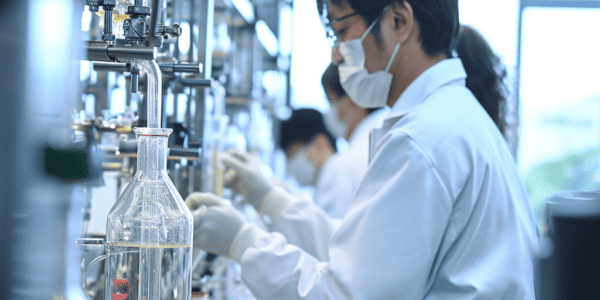Researchers Develop Energy-Efficient Strategy for Ethylene Synthesis via CO2 Reduction
Researchers at Université Montpellier and other institutes have developed a new strategy to facilitate the energy-efficient synthesis of ethylene via the reduction of carbon dioxide. Their approach involves functionalizing copper catalysts for CO2 reduction using aryl diazonium salts, aiming to address the modest selectivity for ethylene and improve energy efficiency. This breakthrough is expected to have significant implications for the energy industry and environmental sustainability.
Revolutionizing Catalyst Development with AI and Automated Lab Infrastructure
Artificial intelligence and automated laboratory infrastructure are revolutionizing the development of new chemical catalysts. Researchers at ETH Zurich have utilized these tools to efficiently synthesize the energy source methanol from CO2. With advanced infrastructure, the team successfully developed approximately 150 catalyst compositions for producing methanol from CO2 in less than six weeks, marking a significant time-saving compared to conventional methods. The researchers have published two papers on their method, highlighting the potential of methanol as a key element for a sustainable hydrocarbon economy.
New Method for Synthesizing Beta-Lactam Scaffold Unveiled by Osaka University Researchers
Osaka University researchers have unveiled a new, simplified method for synthesizing the intricate beta-lactam scaffold, a key component of beta-lactam antibiotics. Published in Nature Catalysis, the study titled ‘Catalytic synthesis of β-lactam derivatives by carbonylative cycloaddition of acylsilanes with imines…



